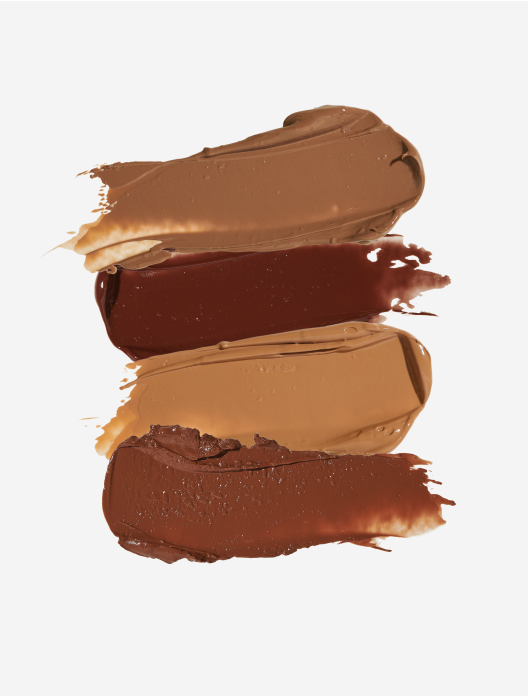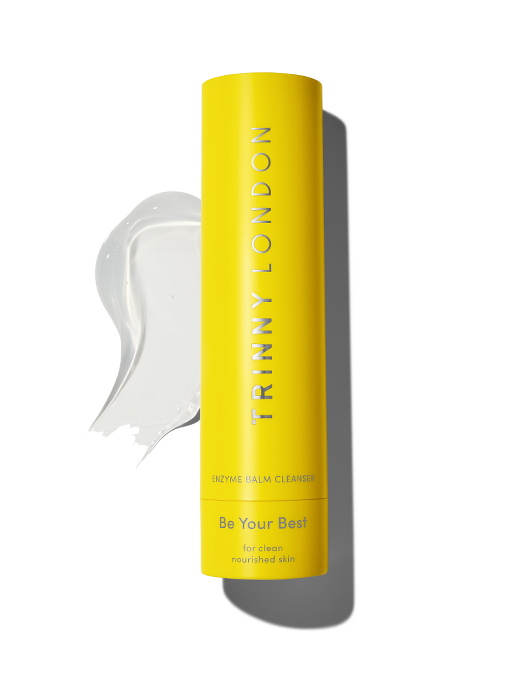
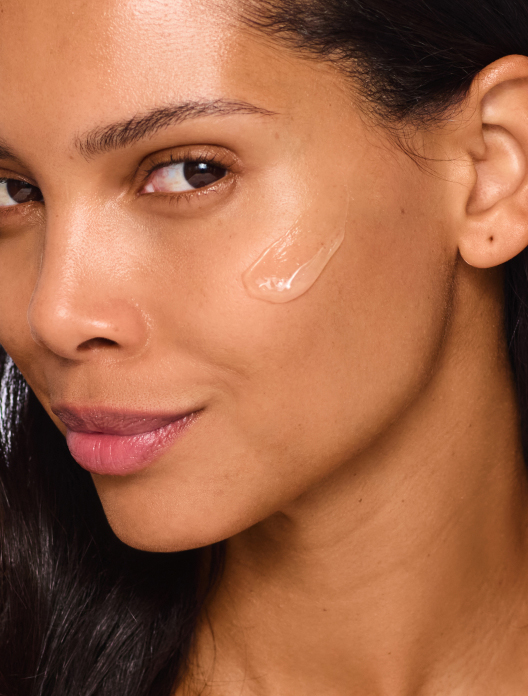
Be Your Best
Oil-based transforming cleanser for clean, nourished skin, suitable for all skin types

When it comes to how our skin looks and feels, both nature and nurture come into play. You inherit some elements of your skin from your genes, but its day-to-day condition is impacted by things like the weather, environment and the skincare you use.
During the summer months, our skin has different challenges to contend with compared to the winter. Rising temperatures can drive redness and irritation, as well as impairing how well our skin barrier works to keep moisture in and nasties out. Congestion and breakouts can be an issue too, triggered by an increase in sweat and humidity. Things like flying and air conditioning, where the air is very dry can also lead to dehydration, and that’s before we’ve even mentioned UV rays. An invisible villain with the potential to rob our skin of collagen and clarity, the sun’s rays are responsible for the majority of skin ageing, as well as hyperpigmentation. In short, our skin could more than do with a helping hand.
If you’re thinking this means you need to completely overhaul your routine depending on the seasons, don’t panic. Taking care of your skin during the summer is more about small, considered tweaks and add ons rather than grand gestures.
Switch up your routine to reduce the impact of common summer skin gripes such as congestion, dehydration and hyperpigmentation.
If you’re not already converted to a double cleanse, summer is the time to start. A far simpler concept than the name suggests, it’s the process of washing your face twice in the evening. The logic? That the first cleanse will remove surface-level grime, like makeup, sweat and SPF, allowing your second cleanse the space to actually clean your skin. This two-step process is great for banishing and preventing congestion driven by a build up on the surface of your skin. Experts recommend an oil-based balm cleanser to start with, followed by a gel cleanser, but there’s no reason why you can’t simply use the same cleanser twice – as long as it’s not micellar water or a makeup wipe.
There’s a skincare rumour circulating that you shouldn’t use your retinoids during the summer months, but that’s not necessarily the case. Retinoids work by helping to speed up cell turnover, bringing the fresher, younger skin to the surface. As this skin is newer, it’s more prone to sun damage. This new skin needs extra protection, so it’s more important than ever to protect your skin during the day with a broad-spectrum SPF. If your retinoid is very strong, such as prescription strength, it may drive irritation in the skin, which can be aggravated by sun exposure. In this instance, again, make sure your skin is protected, wear a wide-brimmed hat and take shade where possible.
With sweat causing skin to feel naturally oilier and SPF becoming a key focus, many of us give into the temptation to ditch moisturiser during the summer months. Moisturiser can feel like something of an unnecessary add-on, but it is a crucial component to help keep dehydration at bay. What you might want to do is change the texture to something that doesn’t feel as heavy or cosseting on your complexion. “Try switching to a lighter moisturiser during the summer, especially if you are oily or have acne-prone skin,” advises Advanced Cosmetic Doctor and skin expert, Dr Ifeoma Ejikeme. “Switching to a lighter one means that as the heat increases, you’re less likely to sweat off the great skincare ingredients you have applied.”
Air conditioning, flying and UV exposure can all zap moisture from the skin, leaving it dehydrated. Quench its thirst by incorporating humectants, like hyaluronic acid, into your routine. These ingredients work like magnets, attracting moisture into the skin and holding it there. For maximum benefits, top with a moisturiser to really seal in all that goodness.
Slow and steady is always the smartest way to approach incorporating new skincare ingredients and products into your routine, but especially during the summer. Diving in at the deep end with high-strength actives onto skin that is already contending with rising temperatures and UV exposure is a recipe for disaster. Think of it like taking on a big extra project at work when your to-do list is already full to the brim. Instead, introduce new skincare slowly. Leave a gap of at least 48 hours between initial applications to check for reactions and only up your usage once you can see your skin is happy and tolerating it well.
UVA rays are present all year round, but UVB, their shorter, high-energy relations are strongest during the summer months. UVB rays are the biggest cause of sunburn and skin cancer. “If you’re not already using an SPF 50, up your SPF from a 30 to a 50 throughout the summer,” says Dr Ejikeme. This will not only help shield your skin from sunburn and skin cancer, but also keep sun-induced hyperpigmentation at bay and slow premature ageing. It’s worth noting that most of us apply less than the recommended amount of SPF, so re-applying regularly throughout the day will help to ensure you’re getting the protection listed on the pack.
Want to take your SPF even further? Double down with an extra serum. “Consider adding an active vitamin C into your routine to sit beneath your SPF,” advises Dr Ejikeme. “Doing this can give you up to seven times more protection from the sun.” The science behind it? Vitamin C is an antioxidant, which means it stops pesky free radicals (found in things like cigarette smoke, pollution and UV) from oxidising our healthy cells. What that doesn’t mean, if that you can lower the factor of your SPF, or skip it altogether. Antioxidants alone aren’t sufficient to shield skin from UV, but they will support the work. Think of it like adding a belt to a dress – the belt will be a beneficial add-on but wouldn’t work alone.
When we are dehydrated, our skin can start to suffer. The evidence is currently limited, but suggests that drinking the recommended amount of water (six to eight glasses a day in the UK) can benefit skin hydration and elasticity levels. There’s also the knock-on effect that when we’re drinking enough water we feel better generally, and are less likely to reach for sugary snacks and caffeinated drinks for fuel. Staying hydrated is harder in the summer as we’re losing fluid through sweat, so make sure you’re reaching, or exceeding, your daily water goal.
Our advice to choose products that are non-comedogenic applies to both skincare and makeup. The term means that a product has been formulated to not be comedogenic, e.g. not cause comedones (spots) like blackheads or whiteheads. It is a marketing term as opposed to a regulated one, but is a helpful indication that the product shouldn’t drive congestion. This is especially helpful for anyone with oily or blemish-prone complexions who struggles to keep their skin clear during the summer.
There are few things that beat the feeling of the sunshine on your skin. But, if you are a bit of a sun-worshipper, there are unfortunately consequences when it comes to things like sunburn, hyperpigmentation and premature ageing. One of the best things you can do for your skin is make your golden glow a fake one. Blending a cream-based bronzer onto the high points of your face where the sun naturally hits (forehead, nose, top of the cheekbones, chin) will allow you to mimic the effects of a day on a sunlounger with none of the cons.
x
Shop the article


Oil-based transforming cleanser for clean, nourished skin, suitable for all skin types
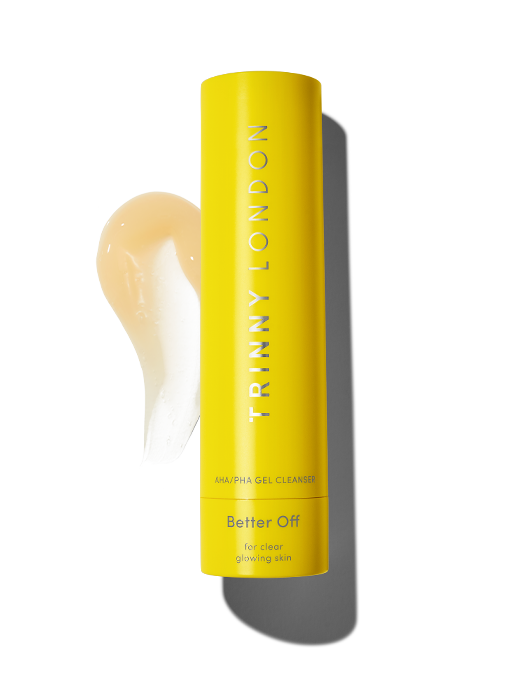
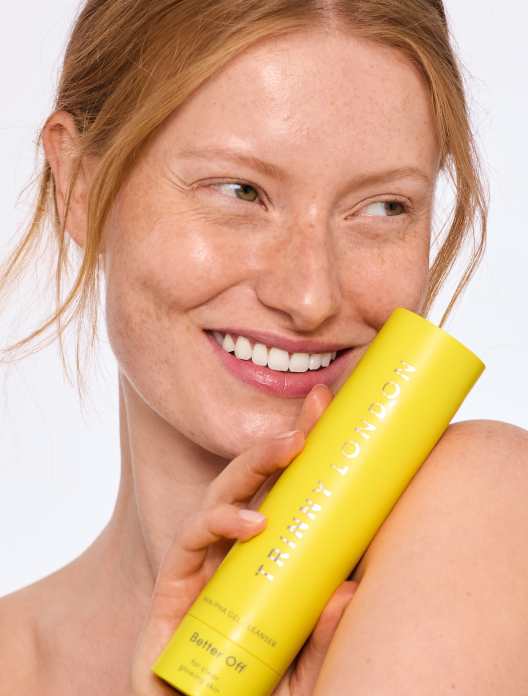
Exfoliating gel cleanser for clear, glowing skin, suitable for all skin types

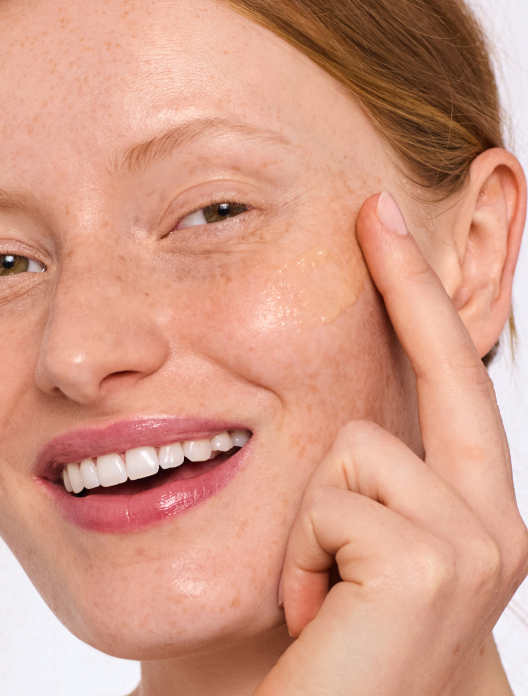
30% vitamin C serum for visibly brighter, glowing skin, suitable for highly experienced skincare users (not for sensitive skin)
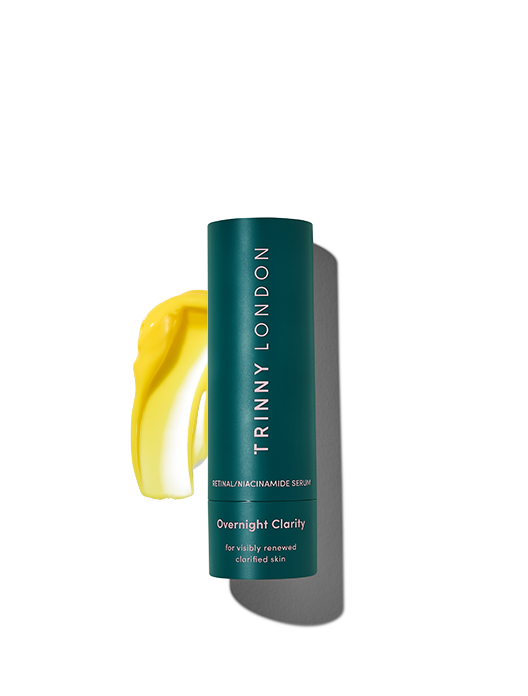
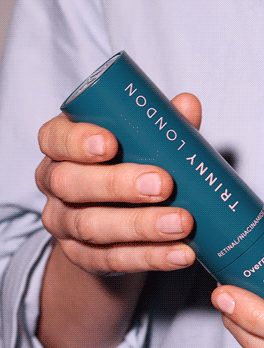
Retinal/niacinamide serum for visibly smooth, even skin, suitable for all skin types
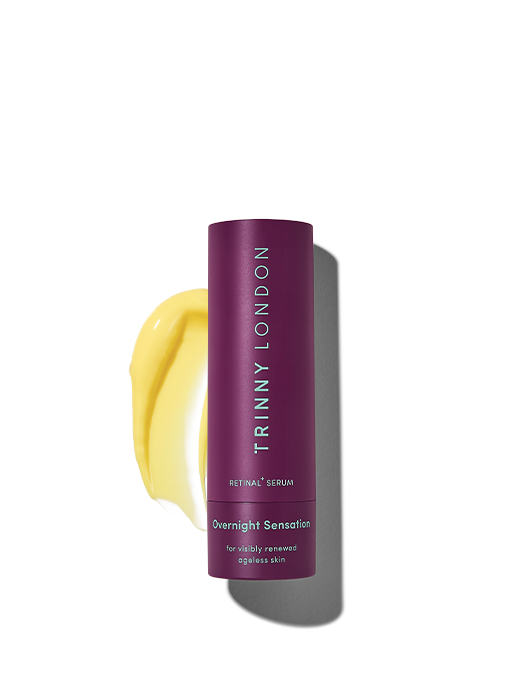
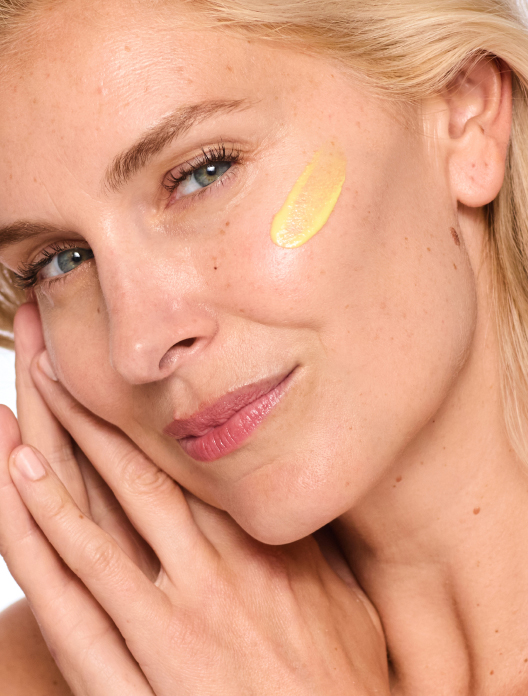
High-dose retinal serum for renewed, smooth skin, suitable for all skin types
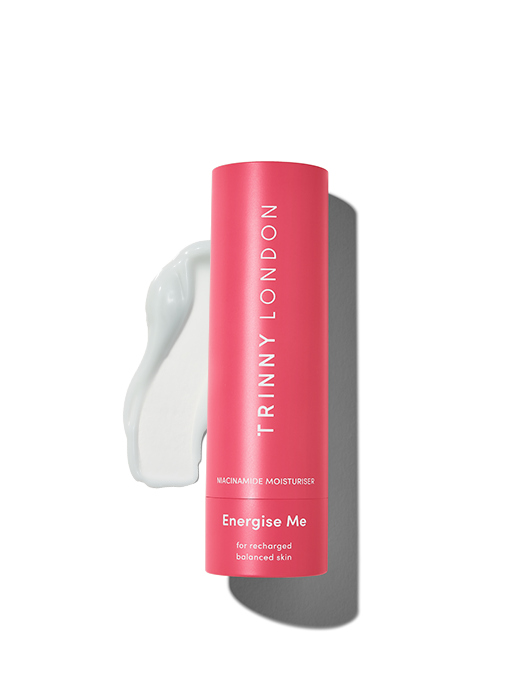
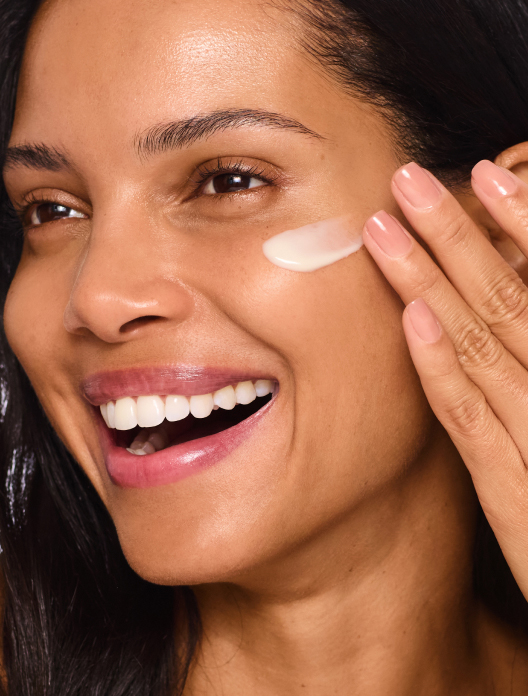
Niacinamide moisturiser for clear, energised skin, suitable for normal to oily skin
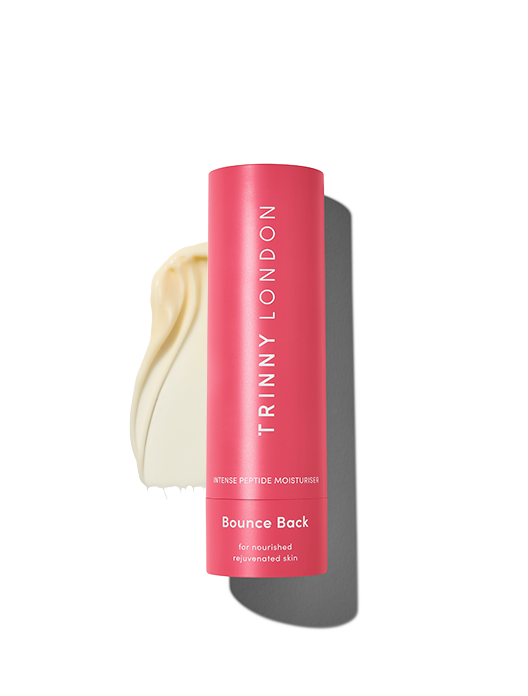
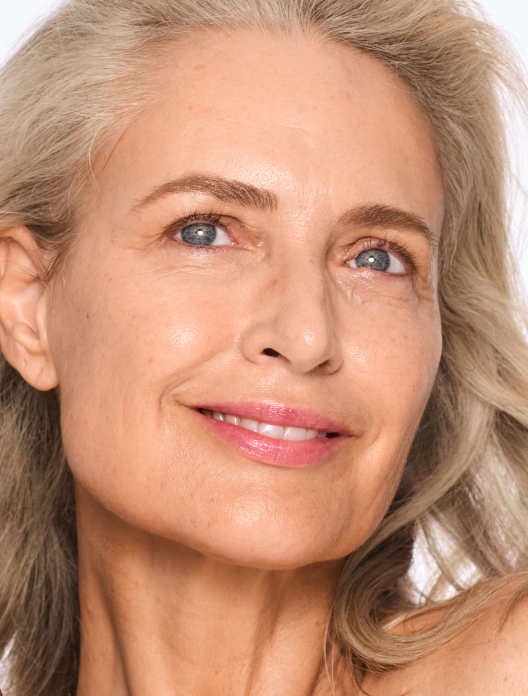
Intense peptide moisturiser for plump, bouncy skin, suitable for normal to dry skin



 5 shades
5 shades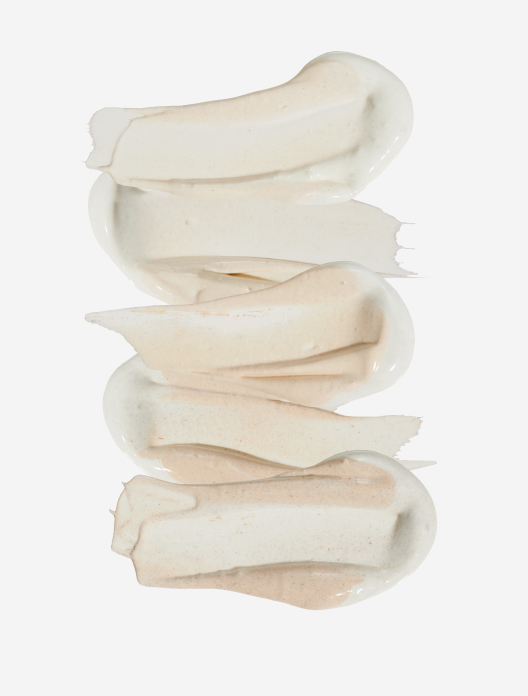
SPF 30 to protect, perfect and give skin a healthy glow
Choose shade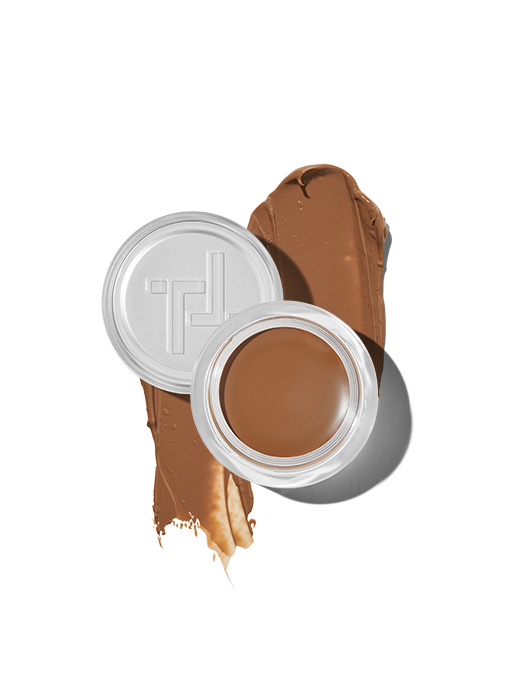
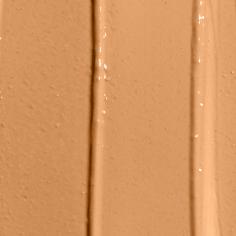

 4 shades
4 shades